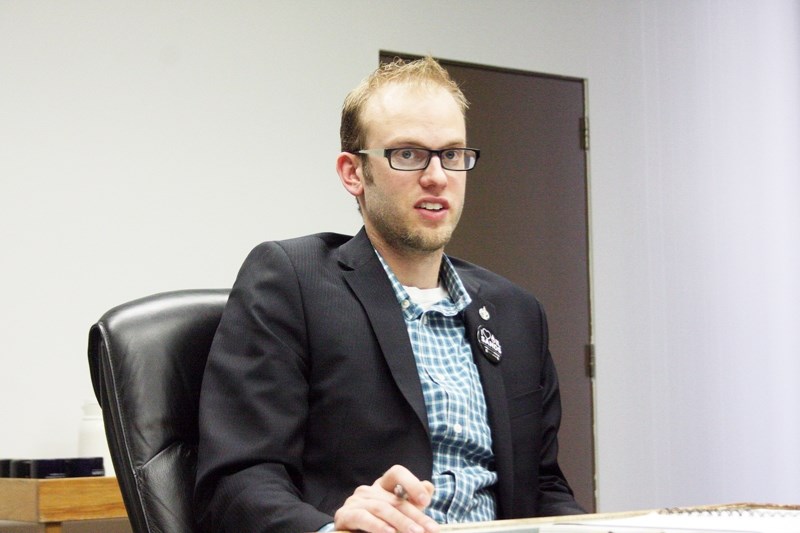Continuing his earlier stance on physician-assisted dying, Peace River-Westlock MP Arnold Viersen is protesting that Bill C-14 lacks any protections for physicians who don’t wish to participate ending another’s life.
Last Thursday, the Liberal government tabled Bill C-14, which will amend the Criminal Code to create exemptions related to aiding suicide, which will permit medical practitioners to provide assistance in dying.
Viersen had previously reacted negatively to the recommendations on a joint inter-party committee on physician-assisted dying (PAD). The committee had been commissioned after a 2015 Supreme Court ruling denying PAD to a woman with degenerative spinal stenosis.
In the March 8 edition of the Westlock News, Viersen argued the Supreme Court of Canada had crossed the line in the view of human life and expressed worries about the ramifications to society.
Following the tabling of Bill C-14, Viersen said he is pleased to see many recommendations put forward by the Conservative dissenting reporting from the Special Joint Committee.
These include recommendations to exclude minors, include stringent safeguards to protect those with underlying mental health challenges and recognize the risks involved with advanced directives.
However, Viersen said, he was concerned that the legislation requires the participation of physicians, noting that doctors cannot refuse to provide health care to another in Canada.
“While the decision to end one’s life may be a personal one, it will impact others. For many physicians, ending the life of another is a direction violation of the Hippocratic oath,” said Viersen.
He noted that freedom of conscience is another important fundamental Canadian value secured for us in the Charter of Rights and Freedoms.
“There’s no conscience protections for doctors in this legislation. How is that going to look across the country?”
Recently, Viersen had sent out a mailout expressing his concerns with the report of the Special Joint Committee on Physician-Assisted Dying.
Viersen asked constituents if they were in favour of euthanasia being available to children. As of Friday, he had received less than 100 responses via mail and e-mail, but about 90 per cent stated no, they were not in favour of euthanasia for children.
“It’s been a good response so far. You never know when you send this out how much comes back,” he said.
Viersen acknowledged that the state of the economy in Alberta is probably the No. 1 thing that most constituents are concerned about right now.
He also pointed out that there is some degree of uncertainty about what physician-assisted death will look like in Canada.
In the U.S., legislation comes down from the state, and in many European countries, it is decided by the people. Canada is somewhat unique in that only the federal government deals with the legality of a practice and leaves it to the provinces to deal with their application, he noted.
Viersen noted he did believe that the majority of the Conservative Party is concerned about this legislation.
Finally, he also called on the Liberals to invest $3 billion in long term care, including palliative care.
“Access to palliative care is an essential part of end-of-life decision making. A pan-Canadian strategy on palliative care is one initiative that has unanimous agreement from the Special Joint Committee and stakeholders, including the Canadian Medical Association.”



